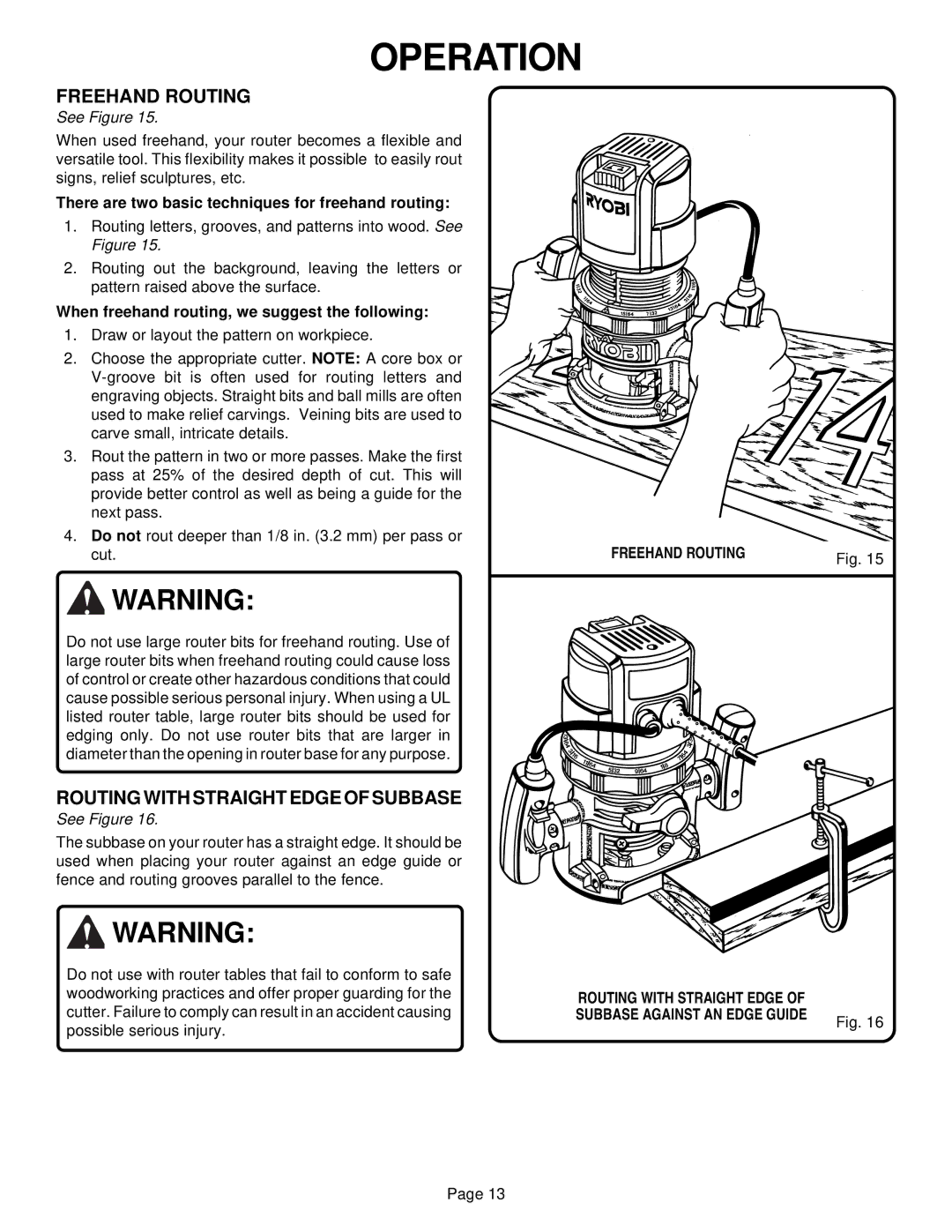
OPERATION
FREEHAND ROUTING
See Figure 15.
When used freehand, your router becomes a flexible and versatile tool. This flexibility makes it possible to easily rout signs, relief sculptures, etc.
There are two basic techniques for freehand routing:
1.Routing letters, grooves, and patterns into wood. See Figure 15.
2.Routing out the background, leaving the letters or pattern raised above the surface.
When freehand routing, we suggest the following:
1.Draw or layout the pattern on workpiece.
2.Choose the appropriate cutter. NOTE: A core box or
3.Rout the pattern in two or more passes. Make the first pass at 25% of the desired depth of cut. This will provide better control as well as being a guide for the next pass.
4.Do not rout deeper than 1/8 in. (3.2 mm) per pass or cut.
![]() WARNING:
WARNING:
Do not use large router bits for freehand routing. Use of large router bits when freehand routing could cause loss of control or create other hazardous conditions that could cause possible serious personal injury. When using a UL listed router table, large router bits should be used for edging only. Do not use router bits that are larger in diameter than the opening in router base for any purpose.
ROUTING WITH STRAIGHT EDGE OF SUBBASE
See Figure 16.
The subbase on your router has a straight edge. It should be used when placing your router against an edge guide or fence and routing grooves parallel to the fence.
![]() WARNING:
WARNING:
Do not use with router tables that fail to conform to safe woodworking practices and offer proper guarding for the cutter. Failure to comply can result in an accident causing possible serious injury.
FREEHAND ROUTING | Fig. 15 |
|
ROUTING WITH STRAIGHT EDGE OF |
|
SUBBASE AGAINST AN EDGE GUIDE | Fig. 16 |
|
Page 13
